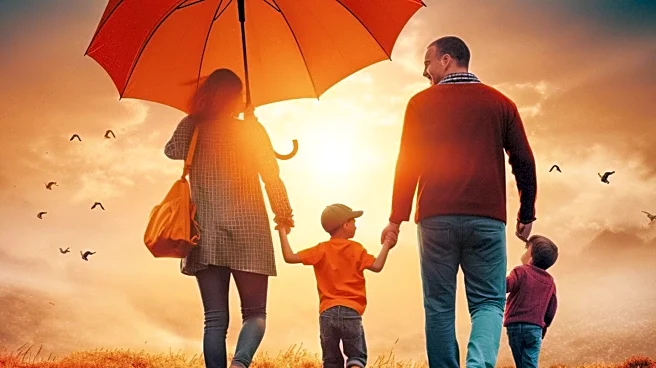What's Happening?
A family is grappling with the decision of what to do with the ashes of a brother who passed away from Covid four years ago. The ashes were handed to them unexpectedly by the deceased's wife's sibling during the memorial service, as the widow was too
distraught to handle them. Since then, the ashes have remained on a bookshelf at the family's home. The family is considering broaching the topic with the deceased's children, who are now adults, to determine a suitable final resting place. The family member responsible for the ashes feels uncomfortable with the current situation and is seeking advice on how to address the issue with the widow and children.
Why It's Important?
This situation highlights the complexities of family dynamics and grief management. The decision regarding the final resting place of a loved one's ashes can be emotionally charged and may affect relationships within the family. It underscores the importance of communication and the need for closure in the grieving process. The family's struggle to find a resolution reflects broader societal challenges in dealing with the aftermath of the Covid pandemic, where many families faced unexpected losses and had to navigate the emotional and logistical aspects of memorializing loved ones.
What's Next?
The family is advised to initiate a conversation with the deceased's widow and children, suggesting that the ashes be returned to them as it is more appropriate for them to handle the final arrangements. This approach aims to resolve the issue by placing the responsibility with the immediate family of the deceased, thereby allowing the family member currently holding the ashes to find peace and closure. The conversation can be conducted in person or via text, emphasizing the importance of addressing the matter directly to facilitate healing and resolution.
Beyond the Headlines
The situation also touches on the ethical considerations of handling a deceased person's remains and the cultural practices surrounding memorialization. It raises questions about the responsibilities of family members in honoring the wishes of the deceased and respecting the emotional needs of those left behind. The family's experience may prompt others to reflect on their own practices and the importance of discussing end-of-life arrangements openly to prevent similar dilemmas.

















